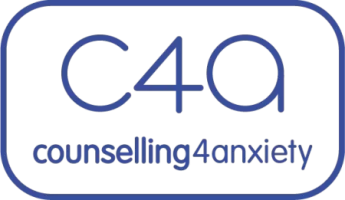At this time, the crisis in the Middle East is affecting many communities in our country. Some people are glued to social media and their ‘X’ feeds, meaning that they are exposed to heightened partisanship, dehumanising statements and videos of young children and men and women bleeding and dying. The partisanship is driving some people to make more and more absurd statements in their desire to propagandise and in some cases, spread disinformation. This has impacts on the mental health of those who are glued to their social media feeds and news sources. Exposure to such material can also deeply affect the values that people have, sometimes shocking them so much that they feel a generalised sense of anxiety, as though the world feels very unsafe at the moment.
What is even worse is that many of Britain’s Jews have close family contacts in Israel, whilst many British Muslims are deeply affected by what is happening in Gaza. So this is very personal for many people. The emotional umbilical cords to the region are deep and very present.
Which is why it is important to limit the amount of time on social media and to be mindful of mental health changes that include increasing frequencies of feelings of despair, residual stress and a creeping sense of hopelessness and loss of interest in life. The longer people are exposed to online feeds and to the appalling partisanship and anger that comes from platforms such as ‘X’, the greater the possibility of longer term emotional impacts on people.
It is also important to note that the more people stay on their social media feeds, the more exposed they are to being drawn into inflammatory and stress causing discussions. The fact is that many algorithms are built to draw in observers so that they comment on things. This has a positive feedback loop by playing on their desires to feel accepted, heighten their sense of validation and thereby becoming part of a ‘pack’ or crowd. Another problem with this is that it heightens the neural reward networks in our mind and plays on many of the same pathways that are involved in addictions. With the activation of such neural networks comes impulsivity and the potential of wider impacts on a person’s life if they make a comment that can affect their social standing, their employment or their friendships.
I also have to add that many are feeling apprehension at this point and this is also fuelling anxiety in many individuals. This is particularly the case with those who have family or friends in Israel and Gaza.
It is interesting to note that for those British Jews that I have spoken to, they are increasingly feeling fearful of their future in Britain. They are also deeply angry and reflective of the 1,200 Israelis murdered by Hamas and they are therefore caught up ruminating on where they may truly feel safe. Feeling like you have no real stake in the future, undoubtedly super-fuels anxiety at a personal and communal level.
For those British Muslims that I have spoken to, whilst this is a generalisation, many speak of anger for the destruction wrought on Gaza and for the children and civilians being killed in large numbers. When the two communal responses are put together, the fight or flight response has been super-activated by the conflict and it is clear to see why there is so much anxiety, anger and fear that is flowing through many people at this time.
Which is why we as therapists can play a critical role at this time in listening to clients who bring up these issues in therapy. At the very least, with anxious clients, we should gently probe that these world events are not layering on another burdensome level on their anxiety.

